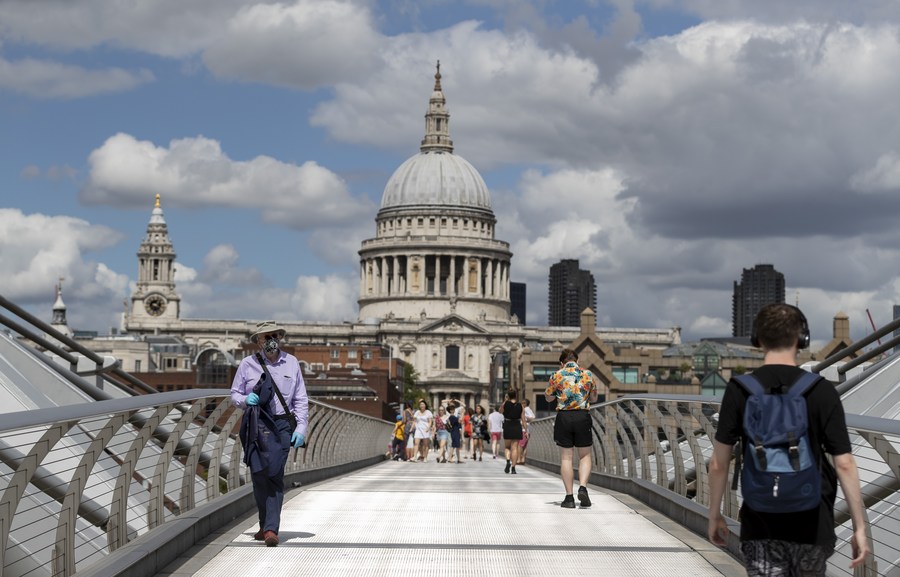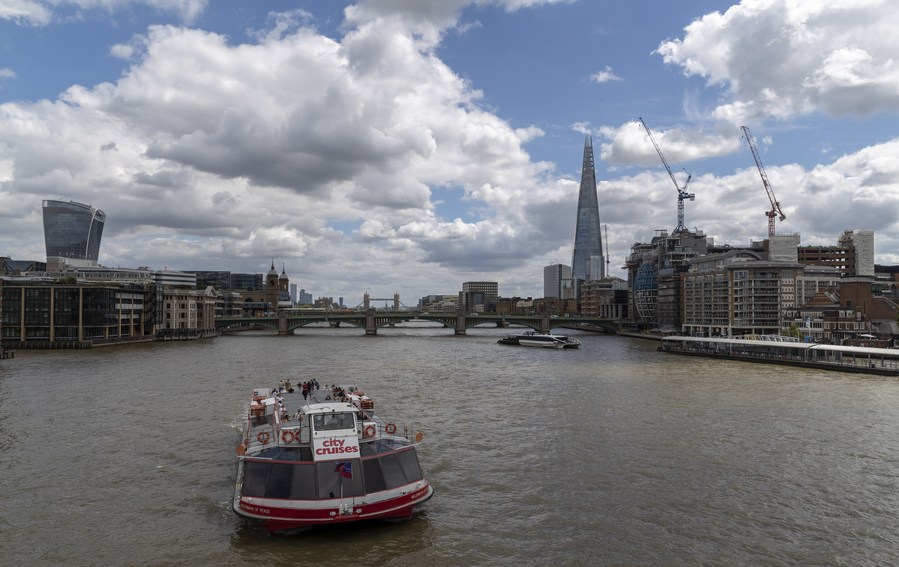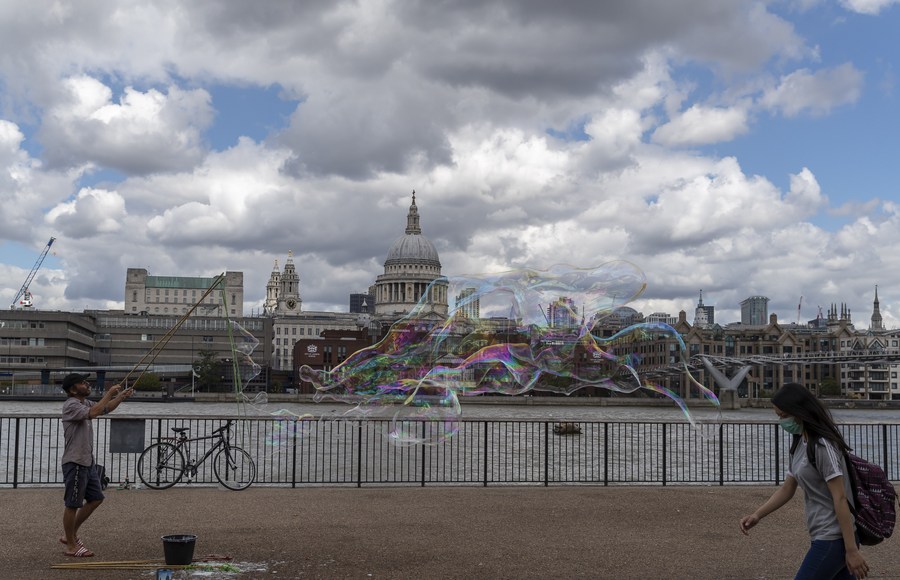
People walk on the Millennium Bridge backdropped by the St. Paul's Cathedral in London, Britain, on Aug. 1, 2020. (Xinhua/Han Yan)
Hannah Cloke, a professor of hydrology at University of Reading, believes that if Britain does not make active preparations for more extreme weather now then "we're going to be in trouble."
LONDON, Aug. 10 (Xinhua) -- In Cambridge in July 2019, Britain broke its all-time high temperature record with 38.7 degrees Celsius. Eight months later, the record-high for winter was also broken with 21.2 degrees Celsius at Kew Gardens, London.
These were both signs that climate change was, and still is, having an increasing impact on Britain's weather, and the trends analyzed in a recent Met Office, Britain's national meteorological service, annual weather report suggest just that.
The Met Office report confirmed that 2019 was the 12th warmest year in a series from 1884, and 1.1 degrees Celsius above the 1961 to 1990 average.
"These trends that we can see within this report, some of these things are very worrying," Hannah Cloke, a professor of hydrology at University of Reading, told Xinhua.
She believes that if Britain does not make active preparations for more extreme weather now then "we're going to be in trouble."
"Sometimes we think we're not so vulnerable to things like heat, you know, we're not on the equator, and we don't have big deserts or anything like that. But actually it's quite serious," she said.
The Met Office stated that 2019 was a particularly wet year across parts of central and northern England, with Lincolnshire, Nottinghamshire, Derbyshire, Leicestershire and Cheshire receiving between a quarter to one third more rainfall than normal.

A cruise sails on the River Thames in London, Britain on Aug. 1, 2020. (Xinhua/Han Yan)
For Cloke, extreme weather in Britain could have many different impacts on everyday life, suggesting that the trend of increasing heat detailed in the report could greatly affect the human body and the wider economy.
"When the human body suffers from heat stress, we see a lot of people get very ill and people can die. That's the drastic consequences of heat," Cloke said.
"Also, it can bring an economic loss. So there are things like our train tracks melting. And there are people suffering in their normal working conditions, it's impossible for them to carry on working, and we've seen from the impact of COVID-19 what that does to the economy, if we can't work then everybody suffers," said Cloke.
Cloke's own research focuses on hydrology, and the trends she has seen in the increase in sea levels around Britain suggests an increase in "storminess" and flooding.
In February this year, Britain experienced seven severe flood warnings -- the highest on record.
"We don't have the capacity at the moment to withstand that. We're not resilient to that type of flooding. We will see people dying, we will see infrastructure washed away, you know that the results are catastrophic in that sense," she said.

A woman wearing a face mask walks by the St. Paul's Cathedral in London, Britain, on Aug. 1, 2020. (Xinhua/Han Yan)
Britain has signed up to the net zero emissions pledge and there is already legislation to make sure that the country reduces its emissions and offsets where it needs to -- but Cloke believes that Britain needs to make active preparations for the direct effects of climate change.
"We're all going to have to seriously consider things like retreating from some of our coastal zones, where we know in the future, we're just not going to be able to sustain the livelihoods of the people who live there and keep them safe from damaging events," she said.
"The UK needs a bit more of a coherent look at all of these different factors to do with climate change, and we're making some good steps, but it's great to have legislation in place to aim at zero," she said.
The Met Office report has seen 2019 break records in terms of extreme weather and many climate scientists have expressed their worry at the trends identified, but Cloke believes that there is still a possibility to "change that trajectory".
"Even though we know it's gonna get worse, we can make it less worse than it might be by doing something and that's important because, our own children are going to be living on this planet," she said. ■



